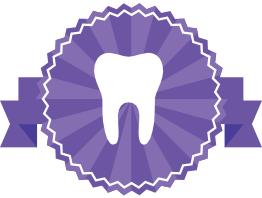
TMJ Disorder — or “TMD” for short — happens when the joints that connect the upper and lower joint aren’t properly aligned. The Temporomandibular Joint is made up of bone, muscle, ligaments, and tendons that work together for smooth movement of the jaw. If your jaw joints don’t line up properly, you might find yourself experiencing jaw pain, difficulty opening or closing your mouth, headaches, teeth clenching or grinding, or even tinnitus. These symptoms are not only painful, they can interfere with the most simple everyday functions like eating, sleeping, and talking.
Get Relief from TMJ Disorder in West Chester
While millions of Americans suffer from some form of TMJ, the majority can be treated easily and painlessly by a skilled dental professional. If you are experiencing pain in your mouth or jaw, or have other common TMJ symptoms, Dr. Schwan can help identify the cause and create a treatment plan. Many cases of TMJ Disorder can be treated easily over time to relieve pain and improve jaw function.
Understanding TMJ and TMD
Most cases of TMJ Disorder are caused by jaw muscle problems — often muscle spasms — that result in pain or tightness. Few cases of TMJ are caused by the joint itself (such as a disk that moves out of position, strained ligaments, osteoarthritis, and other conditions).
The Difference between TMD and TMJ
Although TMJ and TMD are often used interchangeably, they stand for 2 different things. TMJ is an acronym for the Temporomandibular Joint, which is made up of bone, muscle, ligaments, and tendons. These joints are located on either side of the jaw, and join the the lower jaw bone (mandible) to the upper temporal bone (part of skull). These joints work in unison to perform important functions like talking, chewing, swallowing, and yawning. TMD refers to Temporomandibular Joint Disorder, or TMJ Disorder — the condition resulting from the joints being misaligned, that causes jaw pain and other discomfort.
Common TMJ Symptoms
Symptoms of TMJ Disorder are wide-ranging and may vary in degree. If you wondering how to know if you have TMJ or TMD, you might ask yourself if you have any symptoms associated with Temporomandibular Joint Disorder:
- Jaw pain, especially when yawning or chewing
- Clenching or grinding your teeth
- Frequent migraines or headaches
- Tinnitis, ears ringing, or earaches
- Jaw-popping or clicking when chewing or yawning
- Jaw locking up
How to Treat TMJ Disorder
During your visit, Dr Schwan will ask about your symptoms and review your dental records to confirm a TMJ diagnosis. He’ll also examine your head, neck, face, teeth and jaw to determine whether you need treatment for TMJ Disorder.
Although severe TMD can be debilitating, many cases can be treated easily over time with non-surgical treatments that relieve pain and improve function. Mouth guards, bite splits, and NTI appliances may be worn while you sleep, to help the muscles to relax and prevent teeth clenching or grinding. Physical therapy and stretching exercises may also be prescribed to increase the range of joint motion, and relax the jaw muscles.
Solving TMJ Disorder in West Chester, PA

TMD doesn’t have to stand in the way of your living a full and comfortable life. If you are in the West Chester area and experiencing jaw pain or other related symptoms like teeth grinding or migraines, Dr Schwan can customize a plan to relieve your pain. Call us at (610) 431-0700 or contact us to schedule an appointment today, and say goodbye to jaw-related pain.
Dr. Schwan Modern Dental Office is Located in West Chester Pennsylvania, across from Chester County Hospital. Dr. Schwan always welcomes patients from the greater Chester County area.


